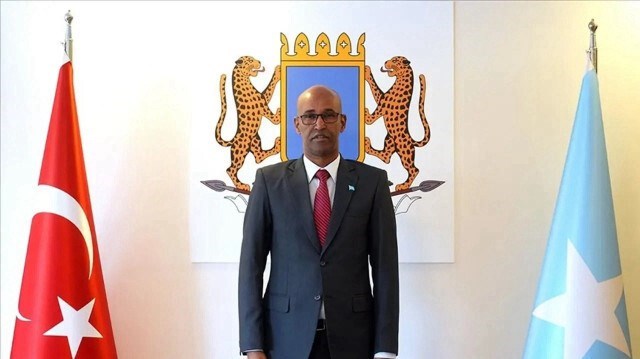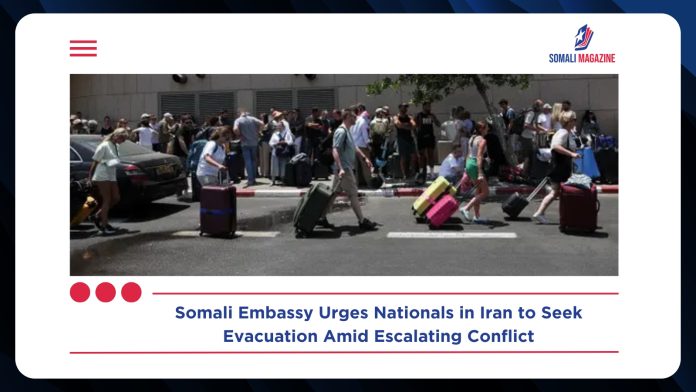Facebook Twitter (X) Instagram Somali Magazine - People's Magazine
The Somali embassy in Turkey has issued an urgent call to Somali nationals residing in Iran to seek evacuation assistance as hostilities between Iran and Israel intensify. The embassy, which oversees consular affairs for Somali citizens in Iran, released a public statement encouraging those wishing to leave the country to contact its offices immediately for support with safe repatriation.
The appeal comes amid escalating airstrikes and military confrontations that have rocked Iranian cities, prompting widespread concern among foreign nationals. The embassy emphasized that it is working closely with relevant institutions to coordinate the evacuation process and ensure the safety of Somali citizens.
“The Embassy of the Federal Republic of Somalia in Turkey informs Somali citizens in Iran who wish to leave the country due to the ongoing fighting there to contact the embassy for assistance in returning to their country safely,” the statement read. A dedicated hotline has been established to facilitate communication, and Somali nationals are being urged to provide updated contact details and valid travel documents to expedite the process.
The Somali community in Iran, composed largely of students and businesspeople, has expressed growing anxiety over the deteriorating security situation. According to reports, at least one Somali medical student at Tehran University was injured during a recent Israeli airstrike. Somali businessman Ahmed Mahmoud Abdi, speaking to BBC Somali, confirmed that the student sustained a head injury but is in stable condition.
“People are feeling the pressure. Unlike some places where people flee immediately, here people are staying put, but there’s clear tension,” Ahmed said. He added that the Somali community is now holding consultations to determine whether to remain in Iran or seek evacuation.
The embassy’s call for evacuation underscores Somalia’s broader commitment to protecting its diaspora in conflict zones. It also reflects the growing urgency among African nations to respond proactively to global crises that affect their citizens abroad.

This is not the first time Somalia has had to coordinate emergency evacuations. In recent years, the government has facilitated the safe return of citizens from conflict-ridden countries such as Sudan, Ukraine, and Libya. However, the current situation in Iran presents unique challenges due to the scale of the conflict and the limited diplomatic footprint Somalia maintains in the region.
The Iran-Israel conflict has escalated dramatically in recent weeks, with Israeli airstrikes targeting Iranian infrastructure, including hospitals, weapons factories, and government buildings. The violence has triggered a wave of fear among foreign nationals, many of whom are now seeking ways to exit the country.
Somalia’s Ministry of Foreign Affairs has reiterated its commitment to safeguarding its citizens and thanked host countries and international partners for their cooperation during times of crisis. The embassy in Ankara continues to serve as the primary point of contact for Somali nationals in Iran, given the absence of a Somali diplomatic mission in Tehran.
As the situation evolves, Somali authorities are urging citizens to remain vigilant and to avoid areas of active conflict. The embassy has pledged to provide regular updates and logistical support to those seeking evacuation, while also coordinating with international agencies to ensure safe passage.
The unfolding crisis highlights the importance of diplomatic preparedness and the need for robust consular services to protect vulnerable populations abroad. For Somalia, the safety of its citizens remains a top priority, and the embassy’s swift response is a testament to that commitment.

